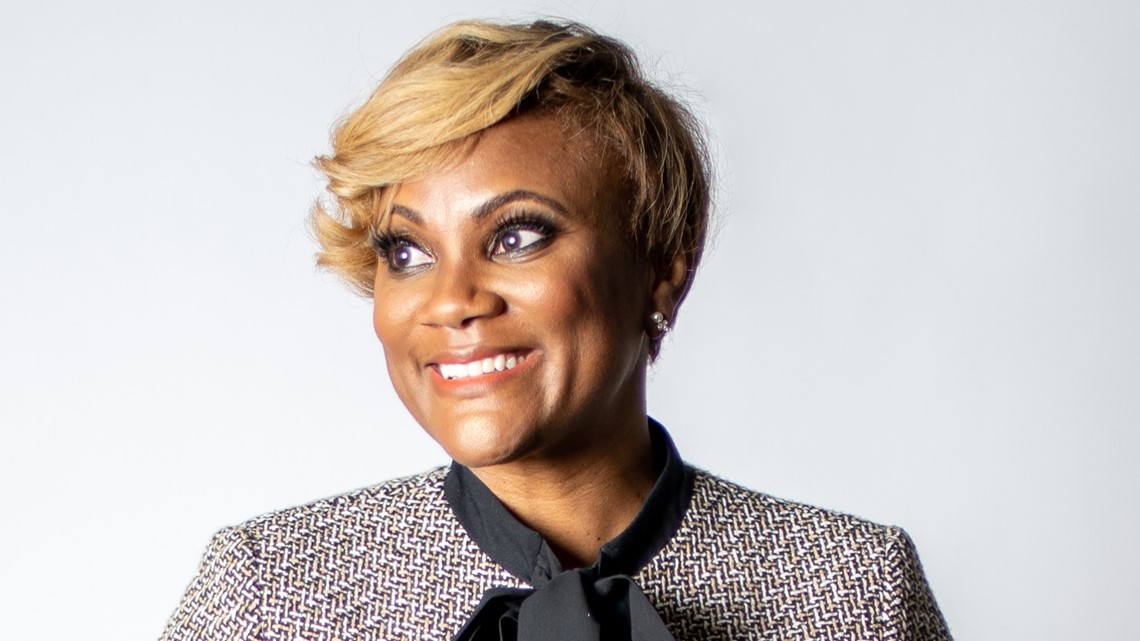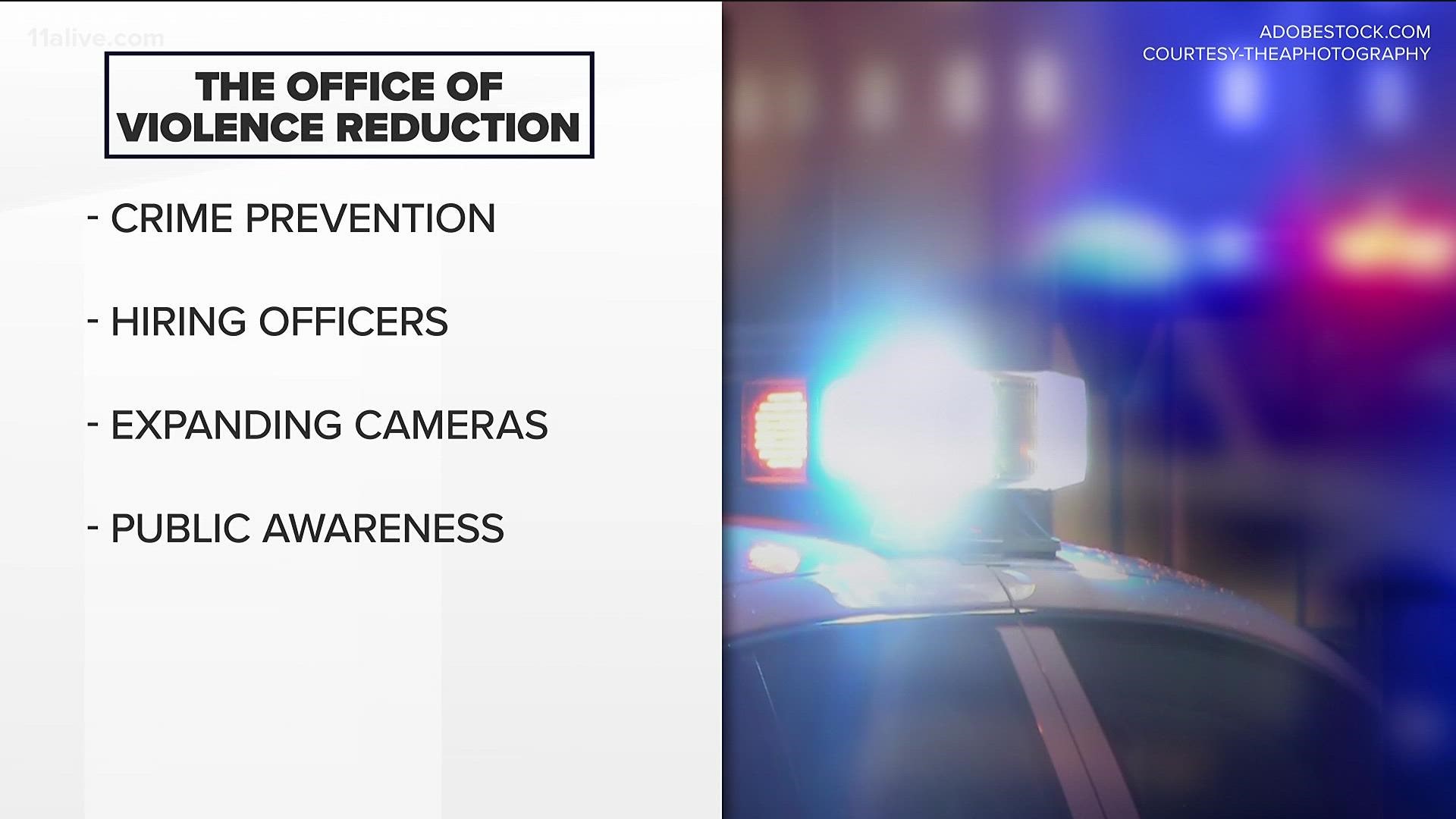ATLANTA — In one of her last major acts in office, Mayor Keisha Lance Bottoms announced an update this week to the Office of Violence Reduction she promised to establish earlier this year.
The office now has a director, Jacquel Clemons Moore, the mayor announced. And it will oversee violence reduction programs through the Cure Violence model on the Westside (Bankhead, Vine City, Washington Park) and in southwest Atlanta (Oakland City, Campbellton Road, Venetian Hills).
Mayor Bottoms, who will make way next month for Mayor-elect Andre Dickens, announced back in July a $70 million proposal to tackle crime which included creating the office.
RELATED: $70M investment proposal from anti-violence council: Money to come from cuts elsewhere, mayor says
This week she said Clemons Moore, a Clark Atlanta graduate, has been on board as director of the office. A release described Clemons Moore as a "passionate public health professional with more than 20 years of experience in developing and deploying culturally appropriate programs and public health interventions."
She began working in community violence prevention in 2015 as the chief operating officer and interim executive director of Kings Against Violence Initiative, during which she "developed and led the organization’s public health strategies that addressed violence and trauma in Brooklyn, New York."
“I am honored to join the City of Atlanta as its first Director of Violence Reduction. Combatting violence is a deeply personal issue for me, as it is for so many people across our great city. I look forward to working hand-in-hand with our communities and stakeholders to implement evidence-informed, community driven solutions to reduce interpersonal violence,” Clemons Moore said in a statement.


The office will now also oversee the violence reduction programs in the two targeted neighborhoods, using $5 million in American Rescue Plan funds.
The Cure Violence model, the mayor's release said, "leverages disease control and behavioral health methods which include but are not limited to: support and facilitate people at high-risk for committing violence through a change in thinking and conflict resolution, interrupt the transmission of retaliatory violence and create opportunities for community norms to change toward a non-violence culture."
Its advocates say it's been shown to decrease shootings in area where it's been deployed by more than 70%.
The city is currently seeking nonprofit partners to implement the model in the Westside and southwest Atlanta areas.
Back in July, the mayor's $70 million proposal came out of a an anti-violence advisory council she had formed in response to the concern around rising crime earlier in the year (there is evidence the crime spike has begun to subside across the country).
Recommendations included:
- Expanding community violence intervention programs;
- Expanding the Atlanta Police Department Repeat Offender Unit to track violent repeat offenders;
- Increasing the resources of APD's License and Permit Team to "enhance nuisance property enforcement" which the mayor identified as clubs that operate after hours;
- Hiring 250 additional police officers in fiscal year 2022
- Expanding a camera network of license plate readers
- Continuing a "Light up the Night" initiative to install 10,000 new streetlights by the end of 2022
It's not yet clear how much of the anti-violence program Mayor-elect Dickens will decide to continue with when he takes office next month.

